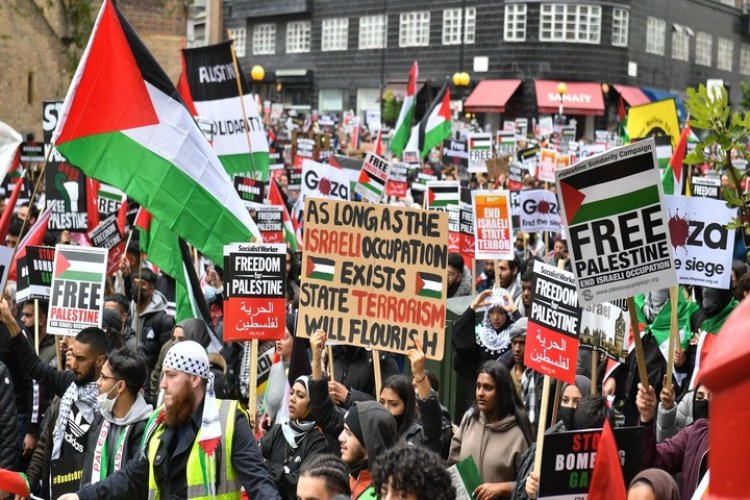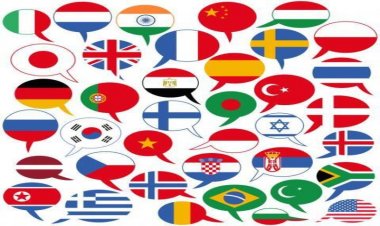Why the young are falling for Hamas propaganda

Identity politics has cast Islamist terrorists as noble freedom fighters.
Throughout the Anglo-American world, many young people seem to have thrown in their lot with Hamas. Indeed, a recent poll carried out by More in Common shows that 24 per cent of 18- to 24-year-olds would characterise Hamas as freedom fighters.
That nearly a quarter of Zoomers have chosen to see Hamas, a vicious Islamist terror group, as liberatory heroes is all too telling. It suggests that millions of young people throughout the West identify with a movement that is unambiguously hostile to their society and way of life. Many of those who regard Hamas as freedom fighters are also likely to give more credence to Hamas propaganda than to mainstream news sources. As a result, over 30 per cent of Zoomers now believe the atrocities committed by Hamas on 7 October are a fiction invented by Israel or the West.
There is considerable evidence that even before 7 October young people tended to be more supportive of Palestine than of Israel. After 7 October, Zoomers stood out for being the generation most likely to support anti-Israel protests. These sentiments are particularly prevalent among university students where the caricature of Israel as a ‘settler colony’ holds sway.
So what is it about Gen Z that has encouraged so many of that cohort to sympathise with or even support Hamas? And why are so many young people excusing the atrocities Hamas committed on 7 October or even denying they ever happened?
Many commentators have found a familiar scapegoat. They are blaming Gen Z’s pro-Hamas views on social media, noting the role played by influencers on TikTok and Instagram, or pointing to the huge amounts of pro-Hamas videos and propaganda on these platforms. They also claim that young people are afraid of saying the ‘wrong’ thing about the conflict, in case it leads to being singled out by the vocal pro-Hamas mob.
Social media’s role is no doubt significant. Unlike older members of society, who still get most of their news from mainstream outlets, the younger generation relies on social media to inform themselves about current events. They are thus much more likely to encounter sceptical takes on mainstream reporting. But it’s important not to overstate social media’s influence. A TikTok influencer does not have magical powers that can automatically make young people perceive an atrocity as a blow for freedom.
To understand properly why many young people are so uncritically anti-Israel, we need to look instead at the influence of identity politics. Make no mistake: identitarianism suffuses Gen Z’s worldview. It dominates Anglo-American popular culture. And it has become institutionalised in schools and universities.
There are three main reasons why the influence of identity politics over Gen Z makes it more likely to support Hamas. First, identity politics has sacralised victimhood. That is, it attributes an enormous amount of moral authority to groups and individuals on the basis of their perceived victimisation. And as Palestinians have been uniformly framed as victims over several decades, they have a tremendous amount of moral authority in identitarian eyes.
Moreover, for the identitarian, the victim is by definition blameless and always to be believed. To doubt the victim’s account of an event is to engage in the crime of ‘victim-blaming’. This all helps to explain the positive attitudes that some Zoomers express towards Hamas. As they see it, this terrorist organisation represents a blameless victim group. Hence Gen Z’s willingness to uncritically accept Hamas’s version of events, even if it involves denying the atrocities committed on 7 October.
The second way in which identity politics shapes Zoomers’ positive view of Hamas rests on the identitarian hostility towards the West. According to this view, Western history is a tale of racial oppression and exploitation, and Western society is built upon ‘white privilege’. In the context of the Middle East, identitarians tend to see Israelis and Jews as Western proxies, symbols of white privilege, oppressing and exploiting dark-skinned victim groups. Furthermore, because of their supposed economic and cultural power, Jewish people are regarded as not only white but as ‘hyper-white’. All this inclines Gen Z to see Israel and even Jewish people as representatives of all that is wrong in the world.
Third, identity politics encourages a conspiratorial mindset. This is because identity politics is built on a diminished sense of agency, in which we are all said to be shaped by the identities we acquired at birth. According to this passive, fatalistic worldview, individuals are constantly manipulated and influenced by hidden powerful forces, from the media to shadowy political actors, which can either validate or victimise us based on our identities. This is the very stuff of conspiracy theory.
Little wonder that Zoomers, a generation immersed in identitarianism, are so susceptible to the influence of conspiracy theories. It therefore doesn’t take much for many of them to believe the outrageous claim that 7 October was a fiction invented by Israeli propagandists.
The identitarian culture of Zoomers – a culture of victimhood, of Western self-loathing and of conspiracism – has allowed pro-Hamas sentiments and myths to flourish. We need to challenge young people’s grossly distorted view of the war between Israel and Hamas. To do so, we need to take on the identity politics that sustains it.
Frank Furedi
He is the executive director of the think-tank, MCC-Brussels.
























